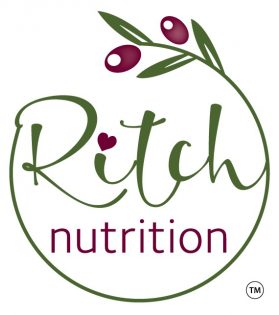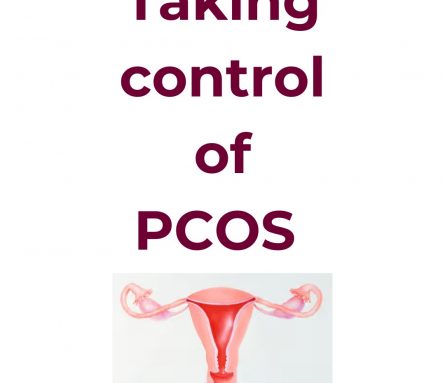Polycystic Ovary Syndrome (PCOS) is one of the most common hormone disorders affecting women of reproductive age. Yet despite its prevalence, it often goes underdiagnosed and misunderstood. If you’ve been told you have PCOS and left wondering what you can do about it — beyond medication — the good news is that targeted diet and lifestyle changes can have a profound impact on your symptoms and overall health.
As a nutritional therapist specialising in women’s health, I support women with PCOS to rebalance their hormones, restore cycle regularity, and feel more in control of their health — naturally.
Here’s how nutrition and lifestyle can play a powerful role in managing PCOS.
🧬 Understanding PCOS
PCOS is a complex condition involving a combination of hormonal imbalances, insulin resistance, and inflammation. It can show up differently for each woman, but common symptoms include:
• Irregular or absent periods
• Acne or oily skin
• Unwanted facial/body hair (hirsutism)
• Hair thinning or loss
• Weight gain or difficulty losing weight
• Mood swings or low mood
• Fertility challenges
There is no single cause of PCOS, and no “cure” — but many symptoms can be managed or even reversed with the right support.
🥦 1. Balance Blood Sugar to Balance Hormones
One of the key drivers of PCOS is insulin resistance, where your body struggles to respond properly to insulin, the hormone that regulates blood sugar. This can lead to higher circulating insulin levels, which in turn can increase androgen production (male hormones such as testosterone), worsening symptoms like acne, hair growth, and irregular periods.
Supporting blood sugar balance is the foundation of any nutritional approach to PCOS. Tips include:
• Eat regular meals with a balance of protein, healthy fats, and fibre-rich carbohydrates
• Limit refined sugars and ultra-processed foods
• Avoid skipping meals, which can lead to energy crashes and cravings
• Add cinnamon to meals — it may help improve insulin sensitivity
🥑 2. Reduce Inflammation Through Diet
Chronic low-grade inflammation is common in PCOS and can worsen insulin resistance and hormone dysregulation. An anti-inflammatory diet can help calm this internal fire:
• Prioritise oily fish (like salmon and mackerel), extra virgin olive oil, nuts, seeds, and avocados
• Eat plenty of colourful vegetables and fruits, which are rich in antioxidants
• Reduce or eliminate trans fats, sugary drinks, and processed snack foods
• Consider turmeric and ginger — powerful natural anti-inflammatories
⚖️ 3. Gently Support Weight Management (If Needed)
Many women with PCOS struggle with their weight, but aggressive dieting and over-exercising often backfire, increasing stress hormones and worsening insulin resistance. If you're looking to lose weight, event a modest 5–10% reduction can significantly improve symptoms. But this must be done in a way that supports your body — not punishes it.
The focus is on:
• Nourishing, satisfying meals
• Gentle blood sugar regulation
• Sustainable changes, not short-term fixes
🌸 4. Focus on Key Nutrients for Hormonal Health
Certain nutrients can be particularly helpful in supporting hormone balance and menstrual regularity in PCOS. These include:
• Inositol (myo- and d-chiro-inositol): Supports insulin sensitivity and ovulation
• Magnesium: Helps reduce inflammation and supports glucose metabolism
• Zinc: May reduce androgen levels and improve skin health
• B vitamins: Crucial for energy, mood, and hormone production
• Omega-3 fatty acids: Anti-inflammatory and hormone-supportive
A personalised supplement plan can make a big difference — but should be based on your individual needs.
😴 5. Prioritise Sleep, Stress, and Self-Care
It’s easy to overlook lifestyle factors like stress and sleep, but they’re hugely important in PCOS management. Chronic stress can raise cortisol and insulin, which in turn disrupts hormonal balance. Key lifestyle tips:
• Aim for 7–9 hours of quality sleep
• Establish a calming evening routine to wind down before bedtime
• Try stress-reducing activities like yoga, breathwork, or nature walks
• Don’t underestimate the power of rest — your body needs it to heal
💬 The Bottom Line: PCOS is manageable and I'm here to help.
PCOS doesn’t have to define you or your health. Through the right nutrition and lifestyle strategies, you can reduce symptoms, regain energy, regulate your cycle, and get back to feeling like yourself again.
There’s no one-size-fits-all approach to PCOS — which is why personalised support can be so powerful.

